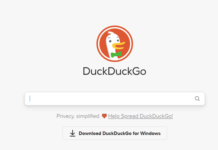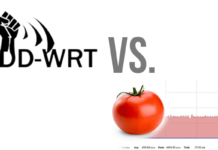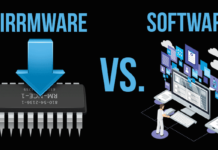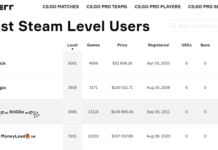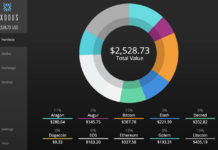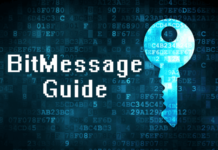In an era where our digital footprints are becoming increasingly visible, the quest for online anonymity has never been more critical. Social media, a double-edged sword, allows us to connect and share, but it also exposes us to potential privacy risks. Consider a scenario where your online identity is both elusive and mysterious, much like a shadow, yet carries significant influence. It is precisely where proxy servers come into play. While acting as the invisible cloak of the digital world, they offer a powerful solution to maintain your anonymity on social media, ensuring your personal information remains just that — personal. Welcome to the world of proxies, your key to a more secure and private online presence.
![]()
Understanding Anonymity on Social Media
Anonymity on social platforms refers to the ability to interact and engage without revealing your true identity. It means your personal information, location, and other sensitive data remain hidden from other users and potentially malicious entities. Considering these benefits, it’s not strange that proxies, like those listed, tested, and analyzed on the ProxyBros Platform, become of paramount importance.
Here are some other reasons why anonymity is crucial on social platforms:
- Privacy: Anonymity helps protect your personal information from being misused or stolen. It ensures that your sensitive data, such as your address, phone number, or financial details, are not exposed to potential cybercriminals.
- Freedom of expression: Privacy allows you to express your views openly without fear of judgment or backlash. It provides a safe space for individuals to share their thoughts and opinions, particularly on sensitive or controversial topics.
- Safety: Anonymity can bolster safeguarding from threats like cyberstalking or harassment. By keeping your identity hidden, you can avoid becoming a target of such malicious activities.
The Role of Proxies in Maintaining Anonymity
Proxy servers act as intermediaries between your device and the internet. They hide your IP address, making your online activities untraceable. Essentially, they provide you with a new digital identity, ensuring anonymity.
How Do Proxies Work?
When you use a proxy server, your internet traffic is routed through it. The proxy server replaces your IP address with its own, masking your identity. This process makes it difficult for anyone (yourself included) to trace your online activities.
Types of Proxies
There are several types of proxies, each with unique features and uses. Some of the most common ones include:
- Residential: These proxies use IP addresses provided by ISPs, making them highly reliable and less likely to be blocked. They are ideal for activities that require a high level of trust, such as accessing geo-restricted content.
- Sneaker: These are specialized services for buying limited-edition or high-demand items, like sneakers, from online stores. Sneaker proxies can help bypass the restrictions put in place by online retailers and increase the chances of successfully purchasing sought-after items.
- Datacenter: These are not affiliated with ISPs and are frequently employed for web scraping or data mining. They offer high speed and are available in large numbers, meaning they are suitable for tasks that require a large volume of requests in a short time.
- Reverse: These proxies have various functions, such as load-balancing, authentication, decryption, and caching, allowing them to manage and safeguard access to a server. Their typical application is in a DMZ to cater to publicly accessible services while ensuring the security and anonymity of the actual host.
- Anonymous: These services conceal the original IP address. Even though they can be detected, they still offer a reasonable level of anonymity to the user’s device.
- Transparent: Given that these proxies don’t hide IP addresses and are designed to be visible in the first place, they are not intended for anonymity. However, you can still utilize them for optimizing network traffic and caching website data.
How to Use Proxies for Anonymity on Social Media
Setting up and using services for social platforms can be facile. Here’s a step-by-step guide:
- Choose a reliable proxy service provider: There are many proxy service providers available, but not all are equal. Look for a provider that offers high-quality proxies and has a good market reputation.
- Select the type of proxy that suits your needs: Depending on your specific requirements, you may need to choose between residential, datacenter, sneaker, or other services.
- Configure your device or browser to use the proxy server: This process may vary depending on your device or browser. Most proxy service providers offer detailed guides to help you with this step.
- Ensure the proxy server works correctly: You can do this by checking your IP address online. If the IP address displayed differs from your actual IP address, the proxy server works correctly.
Risks and Limitations of Using Proxies
While proxies offer numerous benefits, they also come with potential risks and limitations:
- Performance issues: Proxies can sometimes slow down your internet connection. It happens because they route your internet traffic through another server, which can increase the time it takes for data to travel between your device and the internet.
- Security risks: Not all services provide the same level of security. Some might even log your activities, which can be a privacy concern. Thus, choosing a proxy service provider with a clear no-logging policy is vital.
- Blockages: Some websites and platforms may block known proxy IP addresses. It can prevent you from accessing certain content or services.
Other Methods to Maintain Anonymity on Social Media
While proxies are a powerful tool for maintaining anonymity, they are not the only method. Other ways to stay anonymous on social platforms include:
- Using Virtual Private Networks (VPNs): VPNs work similarly to proxies by routing your internet traffic through a server and hiding your IP address. However, VPNs also encrypt your data, providing an additional layer of security.
- Using the Tor network: The Tor network is a decentralized system managed by volunteers that enhances internet privacy and security by routing traffic through multiple servers.
- Adjusting your social media privacy settings: Most platforms provide settings that enable you to manage the visibility of your posts and personal details.
Conclusion
In the digital age, maintaining anonymity on social media is crucial for protecting your privacy and ensuring your safety. And proxies are an effective tool in this endeavor, providing you with a new digital identity and keeping your personal information secure. So, step into the world of proxies and embrace a more private and fast online presence.
